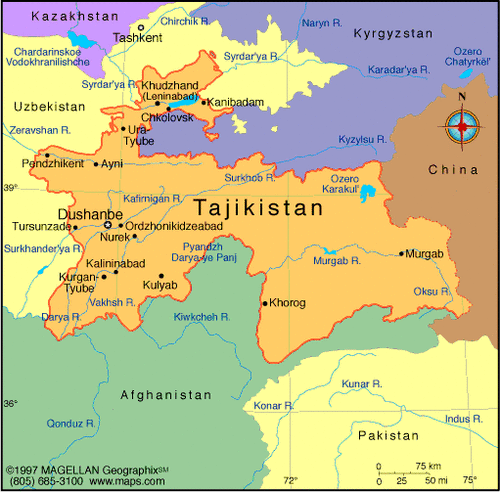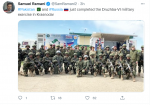Our Next War in Afghanistan Is Already Looming. And It May Be Even Harder.
Travis Tritten,Stephen Losey
13-16 minutes
The dangers that kept the U.S. in Afghanistan for so long are already accumulating again, little more than a month after the last troops left in a chaotic withdrawal.
The al-Qaida terrorist group that drew America into the country two decades ago is poised to come back under the ruling Taliban regime, or it never left at all, depending on whom you ask.
It may be only one to two years before the group could again threaten the U.S. homeland, according to a conservative estimate the Defense Intelligence Agency and the CIA disclosed in September. Then, there was the last spasm of violence before the complete pullout of U.S. forces in Afghanistan -- a
suicide bombing that killed 13 troops that was attributed to a competing terrorist group, the Islamic State-Khorasan.
Under that looming terrorism threat, former defense officials, lawmakers and experts believe a new U.S. military intervention in Afghanistan is likely, maybe even inevitable, in what could be an echo of the withdrawal a decade ago from Iraq that cleared the way for the rise of the Islamic State and years of horrific attacks, killings and more war.
"We are going to have to send U.S. military forces back in some form to Afghanistan," said Bradley Bowman, senior director of the Center on Military and Political Power at the Foundation for Defense of Democracies think tank. "I don't have a crystal ball -- I don't know if that is six months or six years -- but the disaster in Iraq took three years to unfold."
Then-President Barack Obama declared the Iraq war over in 2011. Over the next three years, the Islamic State group grew into a Mideast regional power with control of Mosul, Iraq's second largest city. It sponsored attacks in the U.S. and around the world, slaughtered ethnic minorities, and released videos of the beheadings of aid workers, tourists and journalists, including American James Foley, in a display of barbarity that swiftly drew recruits to form a pseudo-state before American forces returned.
Afghanistan, where more than 800,000 U.S. troops fought over four presidencies to ensure it wasn't a terrorist plotting ground, could be the site of the next war on terrorism. But this time, the military may face even tougher conditions, with the region's remote geography, a lack of bases on the ground, a Taliban regime in control of government, and allies who led a quick initial invasion victory 20 years ago either missing or in exile.
The Pentagon insists it can take out terrorist threats with "over the horizon capabilities," or long-distance surgical strikes. But there is skepticism over the effectiveness of such strikes, which would be carried out by troops and aircraft stationed more than a thousand miles away. A
botched drone strike on Aug. 29 as the U.S. evacuated Kabul showed how such strikes can go wrong -- 10 civilians, including seven children, killed by mistake due to bad intelligence collected from the air.
"I would love to say we have this magic ability to reach in and kill any bad guy, and maybe we'll kill a few of them," Rep. Adam Kinzinger (R-Ill.), an
Air Force veteran who served in the war in Afghanistan, said in an interview. "But man, we run the real risk of just creating more enemies than we do killing them."
New World or Old Safe Haven
The White House sought to turn the page on the war and shift focus as the dust settled in Kabul, even as concerns grew.
President Joe Biden gave an address Aug. 31, telling the country that he "ended 20 years of war" and that the terrorist threat held at bay for so many years by a U.S. military presence had moved elsewhere. It was an effort to explain a military-led withdrawal and evacuation that saw desperate Afghans
clinging to a plane departing Kabul, the deadly suicide bombing, and finally the tragic U.S. airstrike that killed only civilians.
"This is a new world. The terror threat has metastasized across the world, well beyond Afghanistan," said Biden, pointing to Syria, the Arabian Peninsula and Africa.
U.S. Marines with Special Purpose Marine Air-Ground Task Force - Crisis Response - Central Command assist with security at an Evacuation Control Checkpoint (ECC) during an evacuation at Hamid Karzai International Airport, Kabul, Afghanistan, Aug. 26, 2021. (Staff Sgt. Victor Mancilla/U.S. Marine Corps photo)
Biden's top military adviser, Joint Chiefs Chairman Gen. Mark Milley, and the head of U.S. Central Command Gen. Frank McKenzie would later testify on Sept. 28 to the Senate Armed Services Committee that they
recommended maintaining troops in the country.
But the Pentagon would instead keep an eye on the region from afar, Biden said in his address. Afghanistan was a priority, but no longer a top priority.
On the same day as Biden's address, al-Qaida
released a statement praising what it called a Taliban victory over the "filth of the Americans," according to a translation posted by the Long War Journal, a publication of the Foundation for Defense of Democracies.
The United Nations Security Council had reported in June that large numbers of al-Qaida fighters and other extremists aligned with the Taliban
remained in Afghanistan. The group was present in 15 of Afghanistan's 34 provinces but was laying low and minimizing communication with Taliban leaders to avoid international attention, the U.N. reported.
"In many ways, we're in the exact same place we were 20 years ago, and that is with a Taliban-al-Qaida safe haven in Afghanistan," Bowman said.
Top Pentagon officials acknowledged the terror group, which plotted the 9/11 attacks, still had a presence in Afghanistan during hours of questioning from the Senate committee on Sept. 28. The group's original leader, Osama bin Laden, was killed in a U.S.
special operations raid on a Pakistan compound in 2011.
Defense Secretary Lloyd Austin said there were still "remnants" in the Taliban-ruled country, and Milley told the committee al-Qaida exists and wants to regroup from there to strike the U.S.
"Folks, we are going to pay for what we just did," Sen. Tommy Tuberville, R-Ala., said during the hearing. "I got young kids, y'all got kids and grandkids, and we're going to be back in there fighting."
Few Levers Left to Pull
Any U.S. military return to Afghanistan would likely require a major emergency, something akin to the Islamic State group's surge through Syria and northern Iraq in 2014, said retired Gen. Joe Votel, who served as head of U.S. Central Command and U.S. Special Operations Command, and also led
Army Rangers in the Afghanistan and Iraq wars.
Public horror and outrage fueled a years-long U.S. air campaign, which was assisted by a small number of ground troops working with local Syrian and Iraqi forces. A military presence remains in Iraq, but Biden ordered the combat mission to end this year.
"I could definitely see us responding to a threat [in Afghanistan], and I would certainly hope that we would," Votel said in an interview.
But he said any military operations are likely to focus more narrowly on specific targets there, rather than trying to solve conditions in the country that created them. The U.S. poured $2.3 trillion into rebuilding Afghanistan over the 20-year war in hopes of creating a functioning democratic government, according to Brown University's Cost of War project, though that government and its security forces crumbled within days during the Taliban advance over the summer.
Over-the-horizon capabilities, the airstrikes carried out from distant bases, are now the first line of defense, mainly because military options are otherwise limited following the withdrawal.
"We have very few levers in Afghanistan right now because we've completely pulled out," McKenzie said in his Senate testimony.
The U.S. military lost its ground base in Kabul, the partnership with elite Afghan commandos who were the most effective of the U.S.-trained troops, and much of its intelligence feed, making what was set to be a difficult mission over a remote, landlocked country even harder, said William Wechsler, senior director of the Rafik Hariri Center and Middle East Programs at the Atlantic Council.
"Whether we like it or not, we are now in a race, and the race is between the Salafi jihadists' predictable efforts to build external attack capacities and our efforts to establish an acceptably effective over-the-horizon counter-terrorism capability," said Wechsler, who served as deputy assistant secretary of defense for special operations and combating terrorism during the Obama administration.
Lack of Intel and Hard Geography
Austin told the Senate that the military's use of over-the-horizon strikes is fairly common and effective. He pointed to a September airstrike in Syria that the Pentagon said killed an al-Qaida terrorist leader.
"Over-the-horizon operations are difficult but absolutely possible, and the intelligence that supports them comes from a variety of sources and not just U.S. boots on the ground," Austin told the Senate committee on Sept. 28.
But Retired Gen. John Allen, now the president of the Brookings Institution, said that type of intelligence is crucial for such operations. Allen was the NATO International Security Assistance Force commander in Afghanistan, and also served as special presidential envoy to the Global Coalition to Counter ISIL, the U.S.-led group of nations that fought the Islamic State in Iraq and Syria.
"Over-the-horizon targeting implies that you have eyes on the target, you've got some form of boots on the ground or intelligence development capability that's on the ground," Allen said in a Middle East Institute discussion Sept. 16. "We have none, we've basically given it up."
The last U.S. airstrike of the Afghanistan war, which mistakenly killed 10 civilians in a home near the Kabul airport, illustrated how horribly wrong operations overseen from abroad can go.
After receiving conflicting intelligence about the home being used by ISIS-K for a planned attack drawn from video captured by six
Reaper drones watching from above, a strike team located abroad launched a
Hellfire missile that killed an aid worker as well as seven children.
"I would reject a parallel between this operation and an over-the-horizon strike against an ISIS-K target, again, because we will have an opportunity to further develop the target and time to look at pattern of life," meaning long-term monitoring of targets, McKenzie said in a Sept. 17 briefing admitting the botched strike. "That time was not available to us because this was an imminent threat to our forces."
During the war against the Islamic State group in Iraq and Syria, the presence of special operators on the ground was key to targeting the enemy.
But the withdrawal and the loss of the Kabul airport and Bagram airport, one of the most capable and advanced in the region, has hobbled the ability to insert troops if needed and has put any U.S. aerial operations up against the difficult geography of the country.
"The distances here are considerable, and it's hard to cover the distances and sustain these efforts when you have a dynamic threat on the ground," Votel said.
Iran airspace is a no-go for the military, and Allen said Russian President Vladimir Putin will likely try to block any attempts by the U.S. to set up operating bases in the former Soviet republics of Turkmenistan, Uzbekistan, Tajikistan and Kyrgyzstan that box in Afghanistan in the north.
U.S. military strikes could then be dependent on Pakistan giving clearance to fly through its territory. But Islamabad may feel pressure to ally with the Taliban government in Afghanistan, leaving access an open and troubling question as its relationship with the U.S. evolves post-withdrawal, according to Allen.
Pentagon spokesman John Kirby declined to say whether arrangements have been made with Pakistan for the U.S. to use its airspace for over-the-horizon strikes.
As intelligence and access have grown harder, the U.S. also faces a third challenge: the loss of local partners. Indigenous forces were key in both the early days of the Afghanistan war and the operations against the Islamic State in the Middle East.
Afghanistan's Northern Alliance opposition in the Panjshir Valley proved capable in 2001 and gave the U.S. military a toehold. A fledgling anti-Taliban resistance in Panjshir has now been snuffed out as would-be opposition leaders fled into neighboring countries.
The strategic difficulties with continuing military operations in Afghanistan, and the grim terrorism assessments, came as Congress and the Pentagon wrestled with the legacy of the 20-year war.
"I don't think it's pre-ordained that we're going to have to go back," Austin told senators.
The question is what would prompt the military to go back in, and whether it would take another attack on the U.S. homeland, Kinzinger said. Or would it require a steady drumbeat of attacks and atrocities like those committed by the Islamic State in the vacuum left in northern Iraq and war-torn Syria during the last decade?
"I think it's one thing to reintroduce troops into Iraq like we did, but Afghanistan is a whole different thing," Kinzinger said. "That's a frightening idea."
-- Travis Tritten can be reached at travis.tritten@military.com. Follow him on Twitter @Travis_Tritten.
-- Stephen Losey can be reached at stephen.losey@military.com. Follow him on Twitter @StephenLosey.
Related: After Afghanistan: The Legacy of Two Decades of War
Show Full Article
© Copyright 2021 Military.com. All rights reserved. This material may not be published, broadcast, rewritten or redistributed.
The dangers that kept the U.S. in Afghanistan for so long are accumulating again, little more than a month after troops left in a chaotic withdrawal.

www.military.com
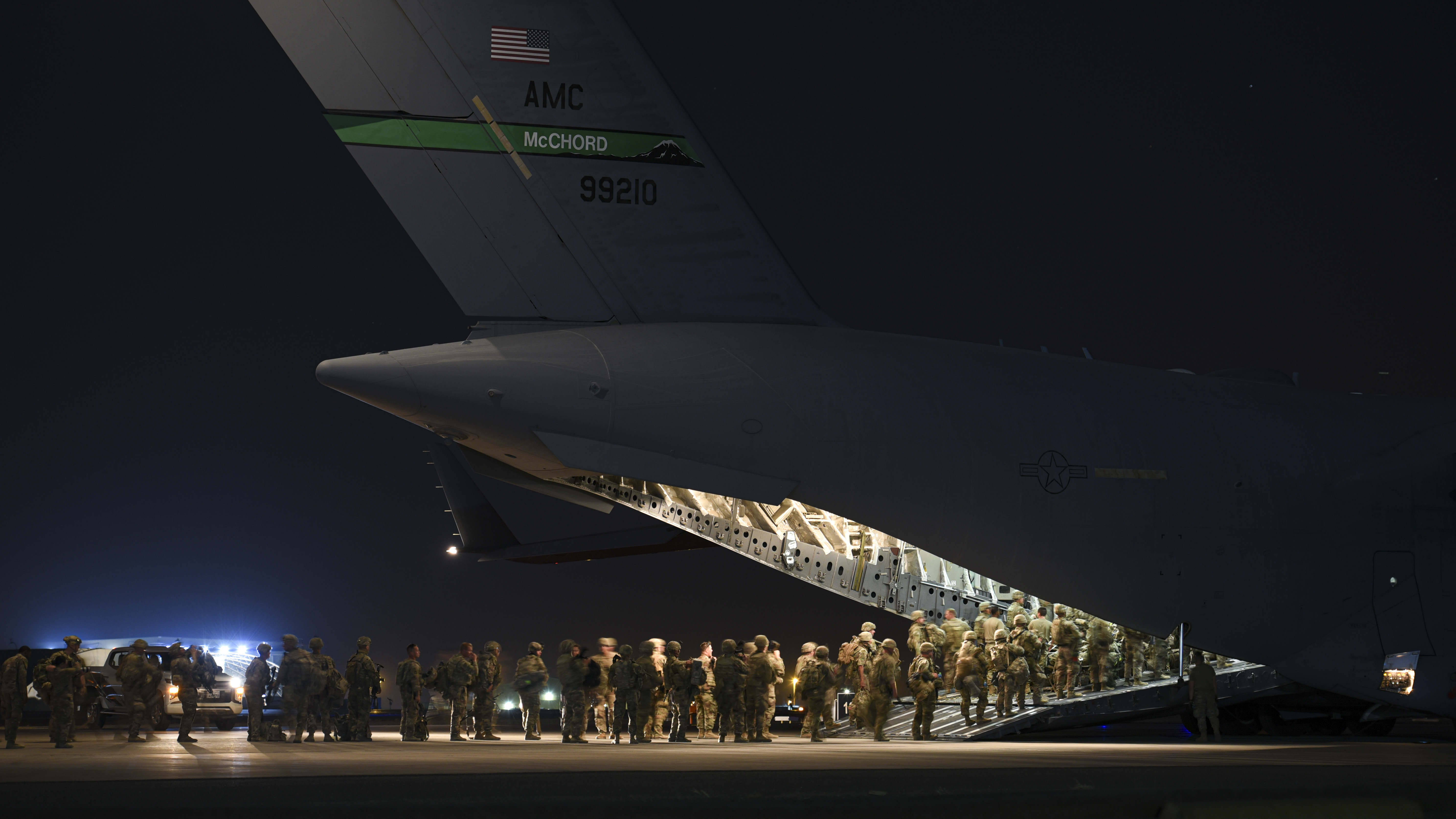
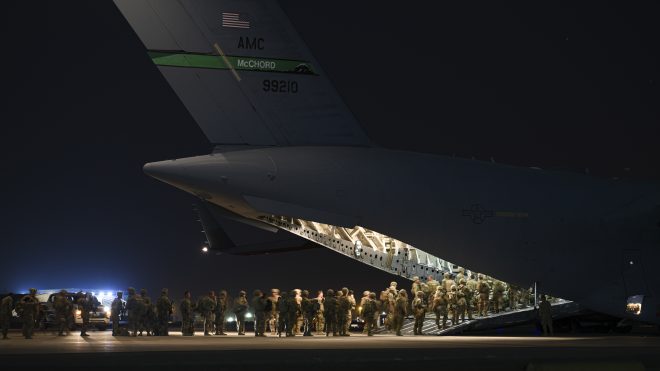


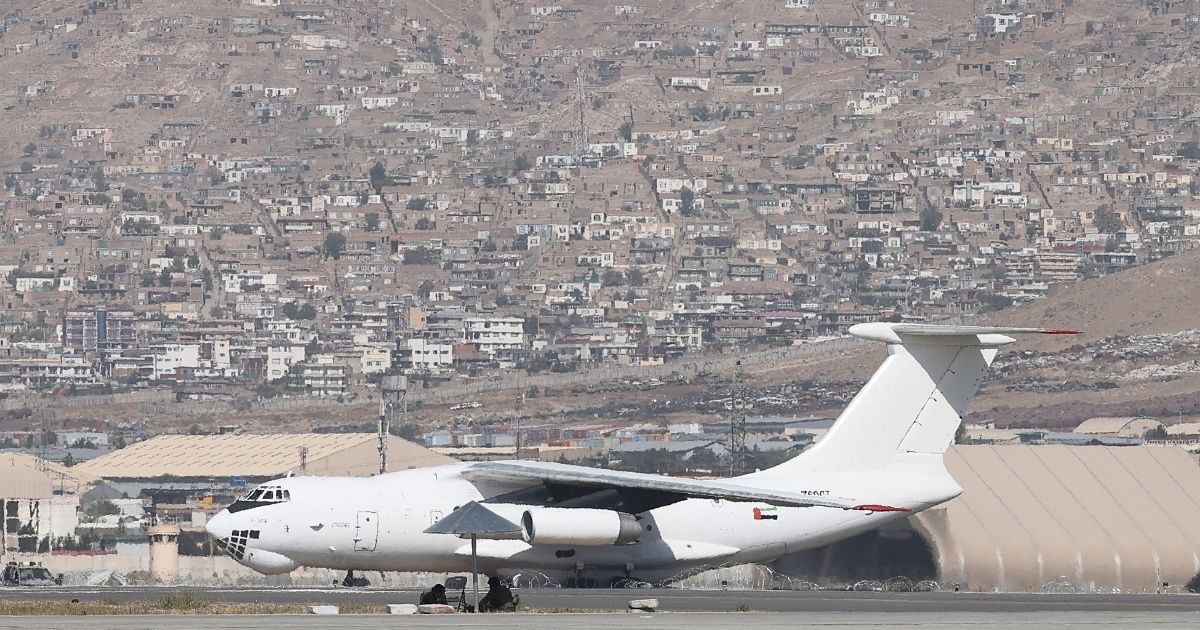

![This is the second time the Taliban has ruled Afghanistan [Sidiqullah Khan/AP Photo] This is the second time the Taliban has ruled Afghanistan [Sidiqullah Khan/AP Photo]](https://www.aljazeera.com/wp-content/uploads/2021/09/AP21227530778064.jpg?resize=770%2C513)
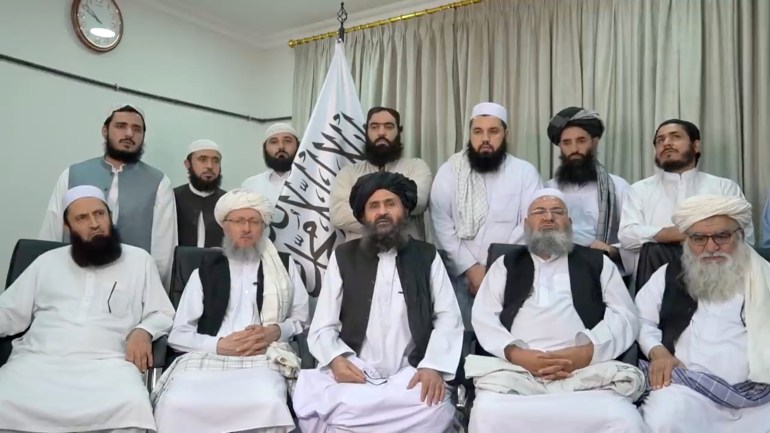
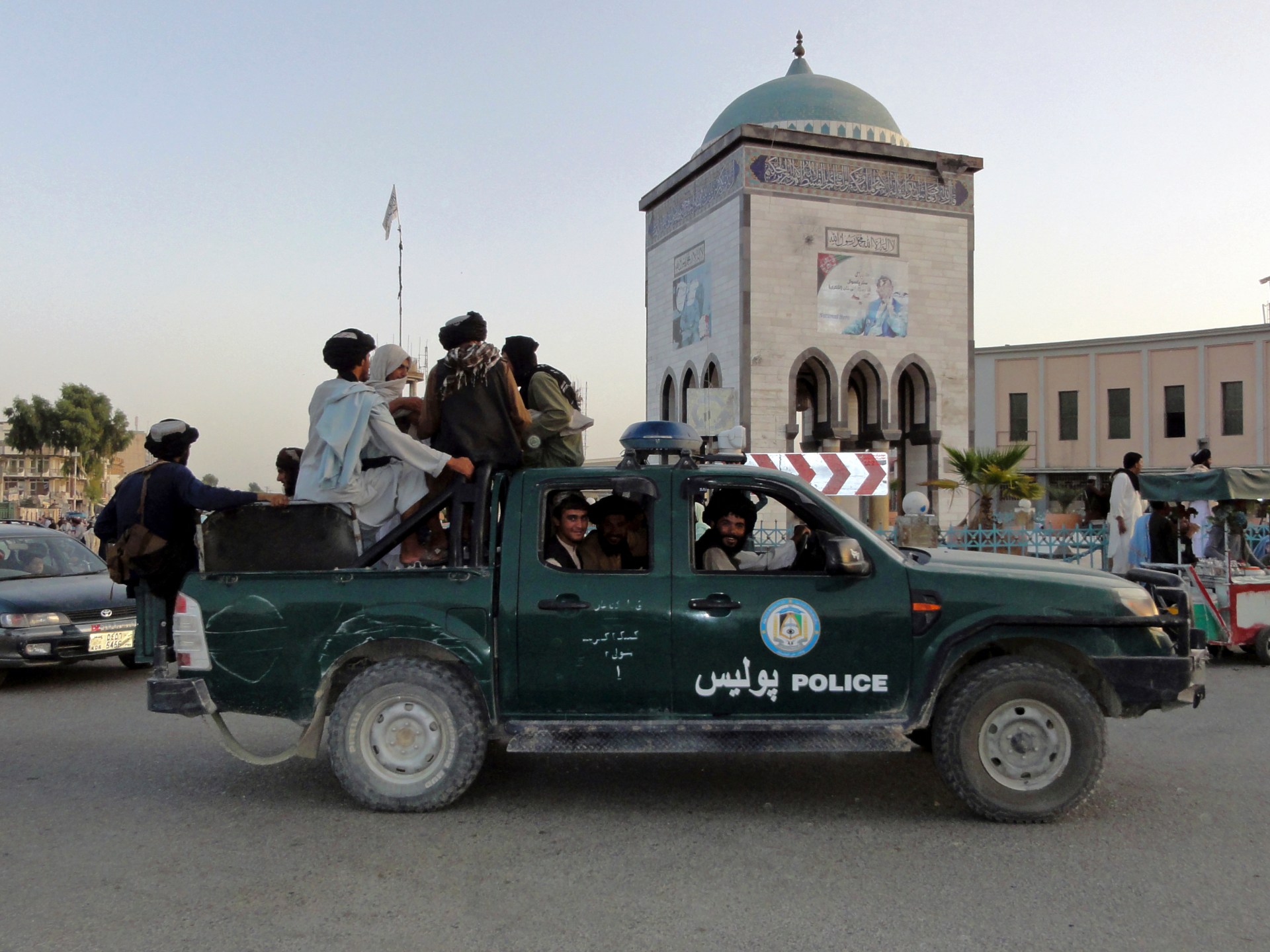
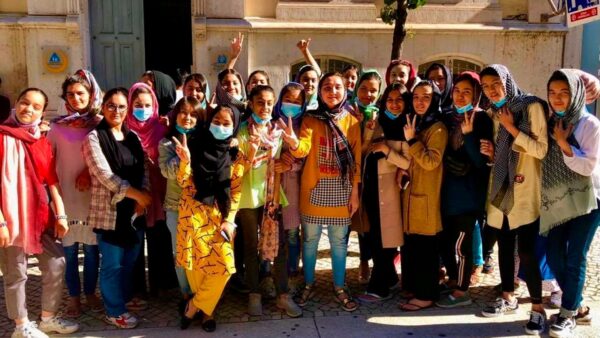
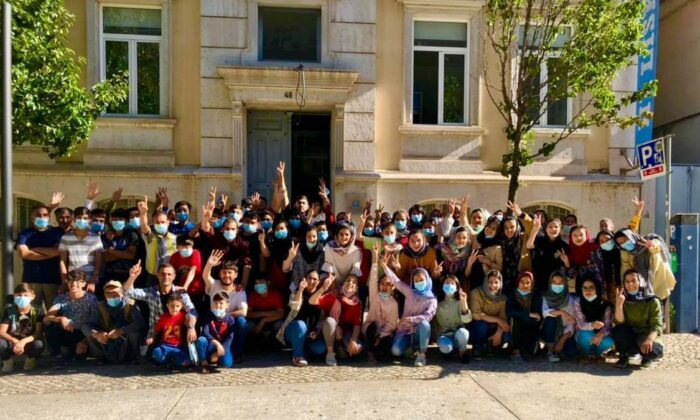















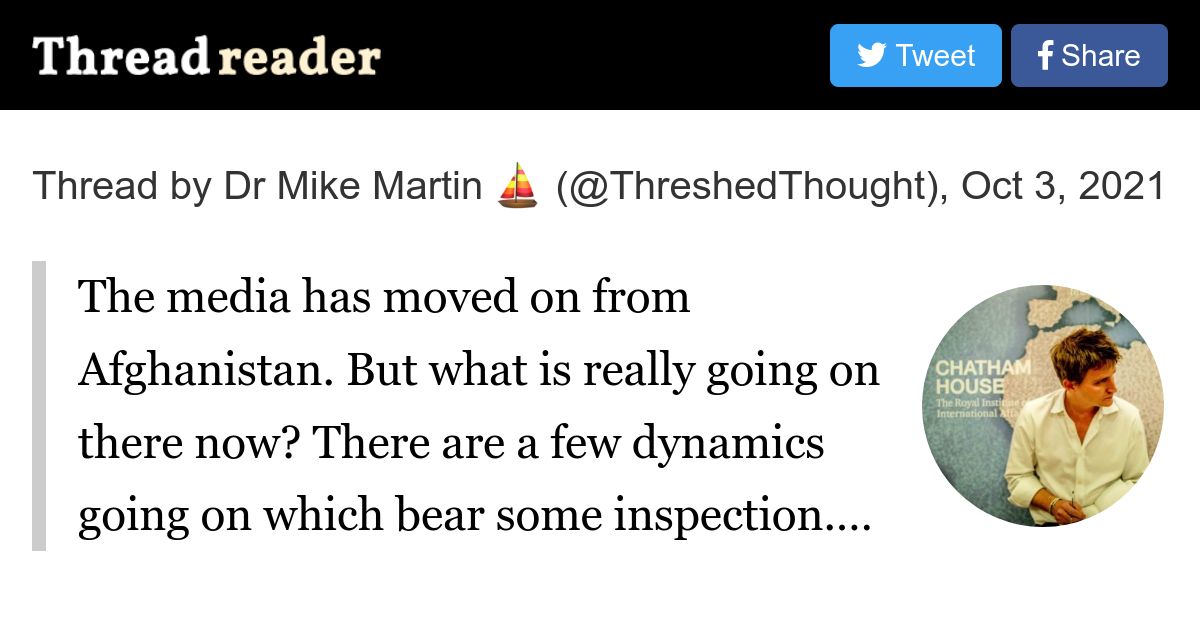
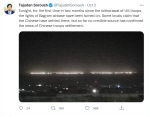
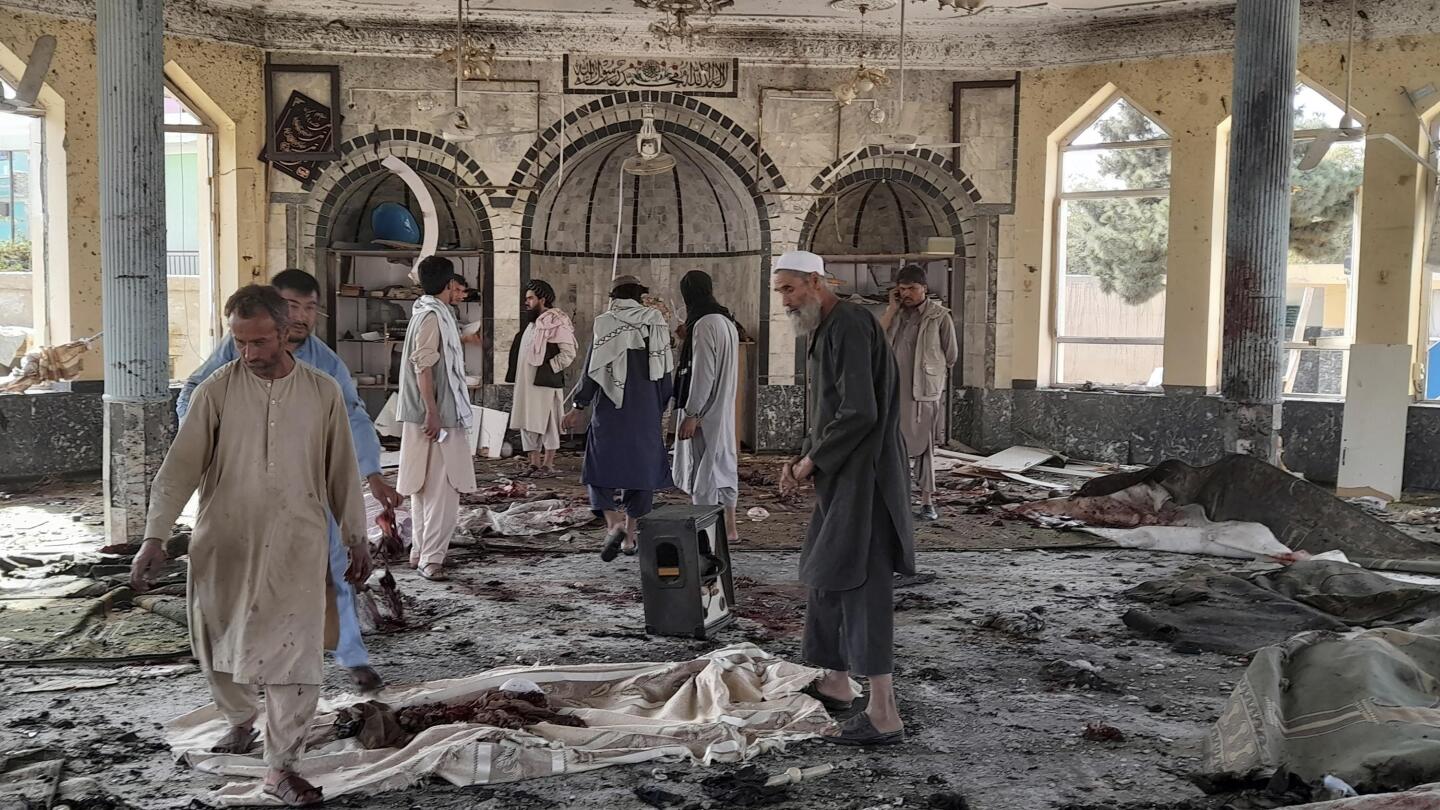


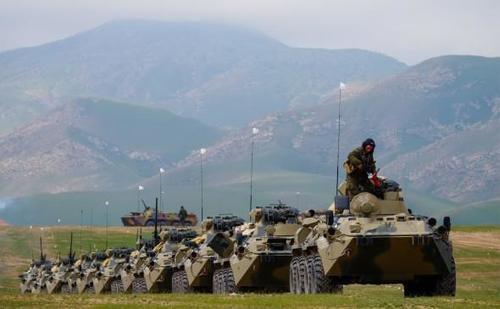 Russian tank convoy, via TASS
Russian tank convoy, via TASS